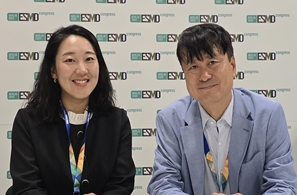- BIO KOREA 2025 'Innovation and Collaboration'
- by Whang, byung-woo | translator Alice Kang | May 8, 2025 06:09am
BIO KOREA 2025, which opened on the 7th, also kicked off its three-day journey with various programs under the theme of “Innovation and Collaboration: Building the Future Together,” marking its 20th anniversary.
In particular, amid various crises and concerns such as investment contraction and the anticipated U.S. tariffs on pharmaceuticals, cooperation for business exchange and synergy creation were emphasized.
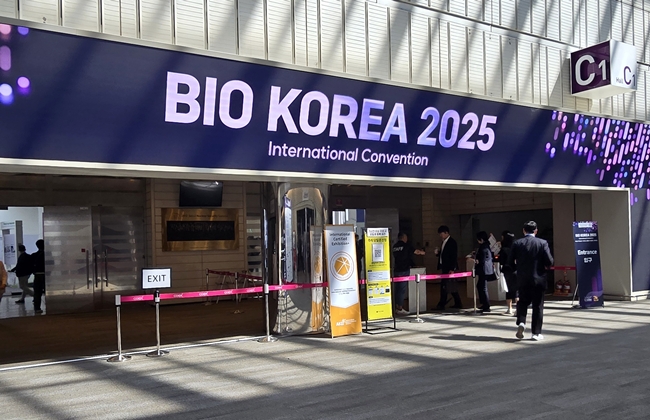
Yuhan Corp and Celltrion take center stage…Amgen’s first participation draws attention
Last year, the main booths at the exhibition were occupied mainly by contract development and manufacturing organizations (CDMOs), but this year, Yuhan Corporation and Celltrion’s booths were positioned at the entrance, in the most visible spots.
Both companies have recently expanded their influence in the global market based on Leclaza (Lazertinib) and biosimilars, respectively.
On the day of the exhibition, Yuhan Corp placed Leclaza at the center of its booth and emphasized that it was the first domestic anticancer drug to be approved by the US Food and Drug Administration (FDA) and the European Medicines Agency (EMA).
Leclaza has recently been approved by the US FDA as a combination therapy and is rapidly advancing into the global market. Through this event, Yuhan Corp sought to highlight the global competitiveness of Leclaza and expand opportunities for cooperation with overseas partners.
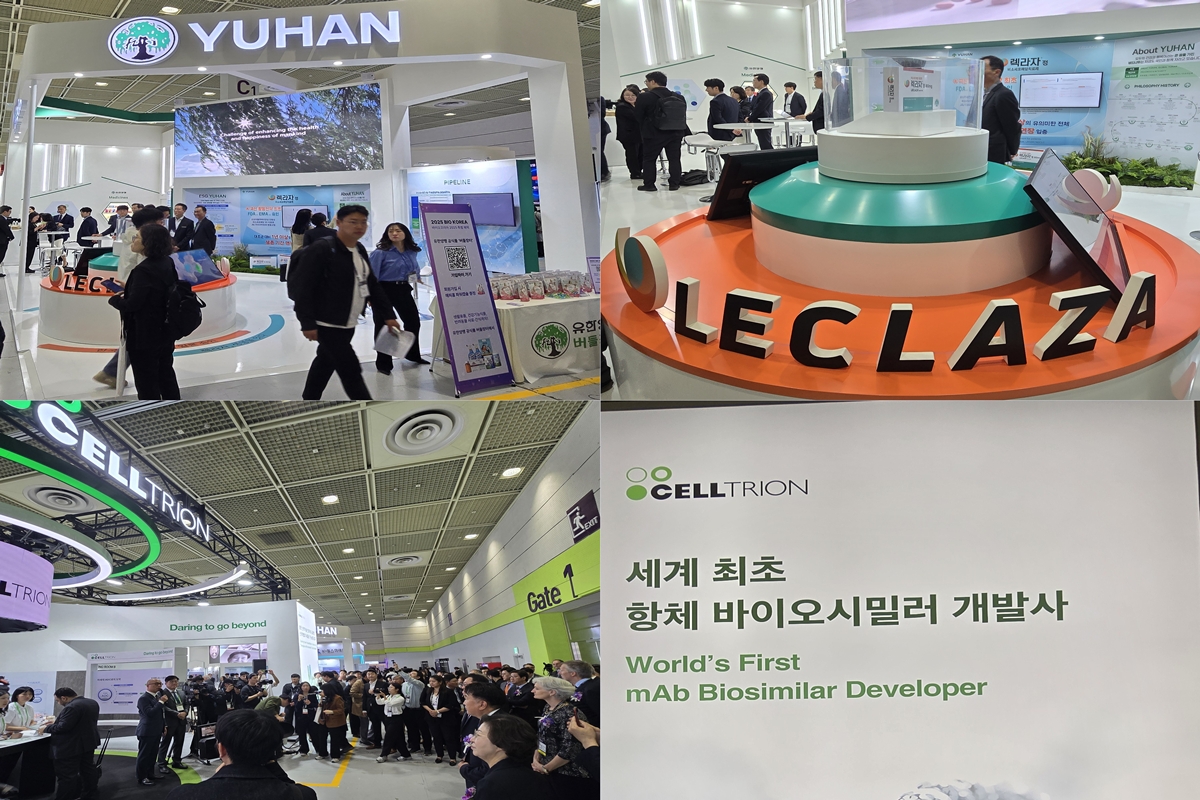
Celltrion was the first company visited by key guests during the exhibition tour. Vice President Bumsung Kim, who introduced the company, emphasized the company’s position in the global market, highlighting that Celltrion is the world's first developer of antibody biosimilars.
Celltrion set out to actively engage in communication at the exhibition as it is seeking global expansion through new drug development and open innovation projects using ADCs in addition to biosimilars.
Among multinational pharmaceutical companies, Johnson & Johnson (J&J), which participated last year, and Amgen, which set up an independent booth for the first time this year, stood out.
Amgen was the only multinational pharmaceutical company to be certified as a “Korea innovative pharmaceutical company” by the Ministry of Health and Welfare at the end of last year, in recognition of its contribution to research and development and investment for the creation of an innovative ecosystem for new drug development in Korea.
Amgen’s main purpose for participating in this exhibition was to expand its network by increasing contact with domestic companies.
Amgen highlighted that it has expanded its open innovation program “Bio Day & Pitching Day,” which it has been conducting with the Korea Health Industry Development Institute since 2024, to nurture domestic biotech ventures into a global program called “Golden Ticket.”
Seung-Jae Lee, Medical TA Lead at Amgen, said, “We are operating open innovation programs such as the Golden Ticket program with the Korea Health Industry Development Institute to create a domestic bio ecosystem and discover and foster venture companies. We will continue to grow together with Korean bio companies through continuous investment in open innovation.”

Sweden participates for the second consecutive year, Netherlands participates for the first time... Operating National Pavilions, seeking to strengthen cooperation
In addition to Australia, which has participated every year, Sweden and the Netherlands operated booths in the form of national pavilions this year to actively explore possibilities for cooperation in the bio industry.
Currently, the Swedish government has designated the life sciences industry as a core area of national competitiveness and is promoting global cooperation and innovation based on government-led strategies and world-class research infrastructure.
In particular, on the same day, an official from the Swedish Trade and Investment Council in Korea expressed interest in creating synergy in the field of advanced therapy medicinal products (ATMP) in conjunction with the revision and implementation of Korea's Advanced Regenerative-Bio Act.
Sweden is a leading country in the field of advanced regenerative medicine, and CCRM Nordic (Center for Commercialization of Regenerative Medicine Nordic), a Swedish non-profit organization, is responsible for ATMP research and development, industrial ecosystem development, and business growth support across Northern Europe and Europe.
An official from the Swedish Trade and Investment Council in Korea said, “We believe that there is still a lack of awareness about Sweden's life science industry in Korea, so we decided to participate for the first time for two consecutive years. We have been actively promoting industry awareness since last year, and as BIO EUROPE was held in Sweden last year, we plan to continue discussions in line with that as well.”
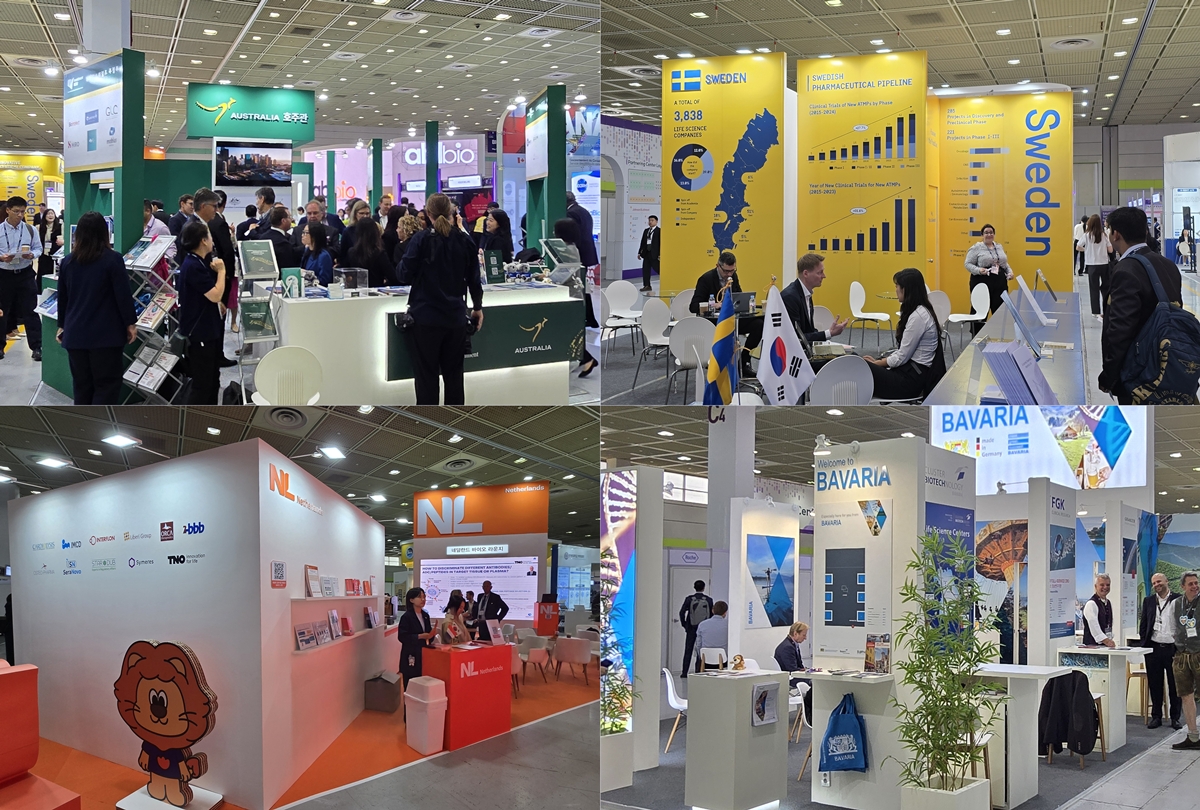
The Netherlands also emphasized the technological capabilities and the will to cooperate of its companies and expressed its hope for expanded partnerships with Korean biotech companies.
As this is its first participation, the Netherlands plans to use this event to identify the needs of companies and expand cooperation in the future.
A representative from the Dutch Embassy said, “There are various bio companies in the Netherlands, so we decided to participate to help them enter the Korean market. Currently, there are consulting companies and early-stage companies seeking to enter the market, and we plan to strengthen cooperation between the two countries in the future.”
Seeking to expand Bio Korea partnerships... still lacks substance
Business partnering at the exhibition, which has become increasingly important recently, has significantly expanded global partnering opportunities for domestic biotech companies.
Through business meetings with companies such as Johnson & Johnson, Amgen, Boehringer Ingelheim, Pfizer, MSD, Takeda, Roche, Novo Nordisk, ST Pharm, and SK Bioscience, plans are in place to create opportunities for new partner discovery, technology cooperation, and joint research discussions.
As there had been criticism in the past that there were not enough partnership opportunities, this year's event has expanded the scale of partnering by about 21% compared to last year, focusing on broadening opportunities.
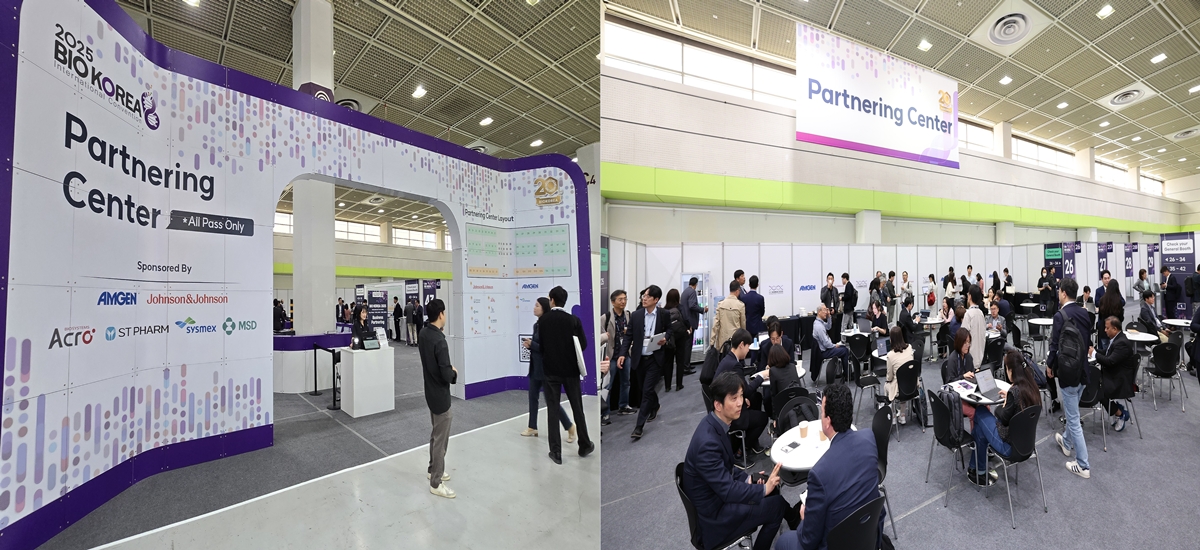
However, with many companies seeking partnering opportunities through overseas exhibitions, there have been suggestions that domestic exhibitions need to have more “substance” to ensure continuity.
A representative from a biotech company that set up a booth at BIO KOREA stated, “While it is a positive change in terms of increasing the scale and opportunities for partnerships, there are still areas that fall short when compared to overseas exhibitions. For companies in the Asia-Pacific (APEC) region, there may be good business development opportunities, but given that global companies' headquarters are unlikely to attend, there is a need to reconsider the direction.”
-

- 0
댓글 운영방식은
댓글은 실명게재와 익명게재 방식이 있으며, 실명은 이름과 아이디가 노출됩니다. 익명은 필명으로 등록 가능하며, 대댓글은 익명으로 등록 가능합니다.
댓글 노출방식은
댓글 명예자문위원(팜-코니언-필기모양 아이콘)으로 위촉된 데일리팜 회원의 댓글은 ‘게시판형 보기’와 ’펼쳐보기형’ 리스트에서 항상 최상단에 노출됩니다. 새로운 댓글을 올리는 일반회원은 ‘게시판형’과 ‘펼쳐보기형’ 모두 팜코니언 회원이 쓴 댓글의 하단에 실시간 노출됩니다.
댓글의 삭제 기준은
다음의 경우 사전 통보없이 삭제하고 아이디 이용정지 또는 영구 가입제한이 될 수도 있습니다.
-
저작권·인격권 등 타인의 권리를 침해하는 경우
상용 프로그램의 등록과 게재, 배포를 안내하는 게시물
타인 또는 제3자의 저작권 및 기타 권리를 침해한 내용을 담은 게시물
-
근거 없는 비방·명예를 훼손하는 게시물
특정 이용자 및 개인에 대한 인신 공격적인 내용의 글 및 직접적인 욕설이 사용된 경우
특정 지역 및 종교간의 감정대립을 조장하는 내용
사실 확인이 안된 소문을 유포 시키는 경우
욕설과 비어, 속어를 담은 내용
정당법 및 공직선거법, 관계 법령에 저촉되는 경우(선관위 요청 시 즉시 삭제)
특정 지역이나 단체를 비하하는 경우
특정인의 명예를 훼손하여 해당인이 삭제를 요청하는 경우
특정인의 개인정보(주민등록번호, 전화, 상세주소 등)를 무단으로 게시하는 경우
타인의 ID 혹은 닉네임을 도용하는 경우
-
게시판 특성상 제한되는 내용
서비스 주제와 맞지 않는 내용의 글을 게재한 경우
동일 내용의 연속 게재 및 여러 기사에 중복 게재한 경우
부분적으로 변경하여 반복 게재하는 경우도 포함
제목과 관련 없는 내용의 게시물, 제목과 본문이 무관한 경우
돈벌기 및 직·간접 상업적 목적의 내용이 포함된 게시물
게시물 읽기 유도 등을 위해 내용과 무관한 제목을 사용한 경우
-
수사기관 등의 공식적인 요청이 있는 경우
-
기타사항
각 서비스의 필요성에 따라 미리 공지한 경우
기타 법률에 저촉되는 정보 게재를 목적으로 할 경우
기타 원만한 운영을 위해 운영자가 필요하다고 판단되는 내용
-
사실 관계 확인 후 삭제
저작권자로부터 허락받지 않은 내용을 무단 게재, 복제, 배포하는 경우
타인의 초상권을 침해하거나 개인정보를 유출하는 경우
당사에 제공한 이용자의 정보가 허위인 경우 (타인의 ID, 비밀번호 도용 등)
※이상의 내용중 일부 사항에 적용될 경우 이용약관 및 관련 법률에 의해 제재를 받으실 수도 있으며, 민·형사상 처벌을 받을 수도 있습니다.
※위에 명시되지 않은 내용이더라도 불법적인 내용으로 판단되거나 데일리팜 서비스에 바람직하지 않다고 판단되는 경우는 선 조치 이후 본 관리 기준을 수정 공시하겠습니다.
※기타 문의 사항은 데일리팜 운영자에게 연락주십시오. 메일 주소는 dailypharm@dailypharm.com입니다.



